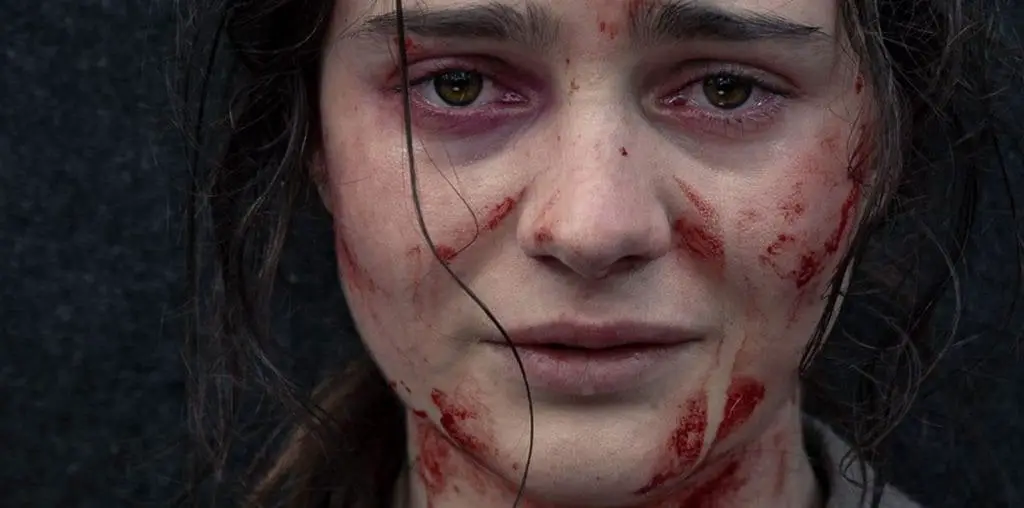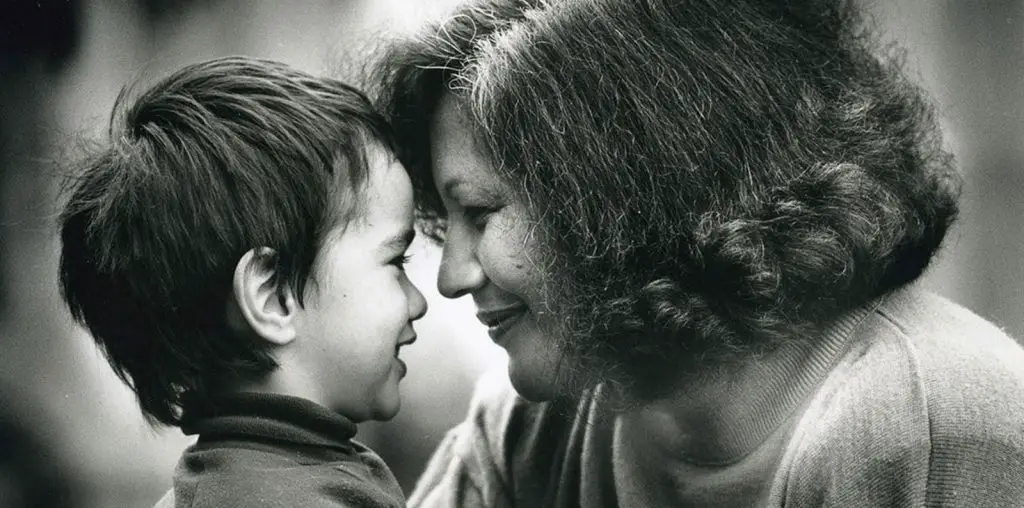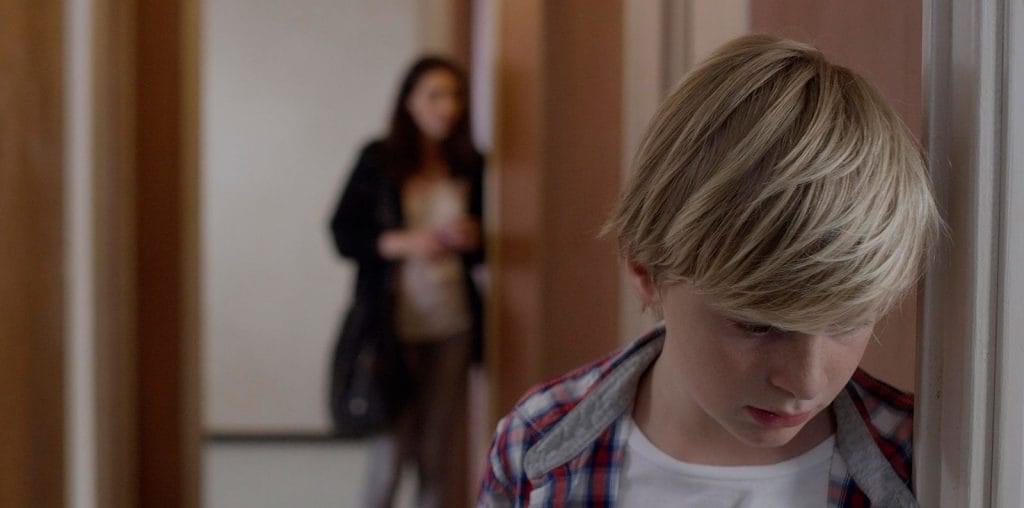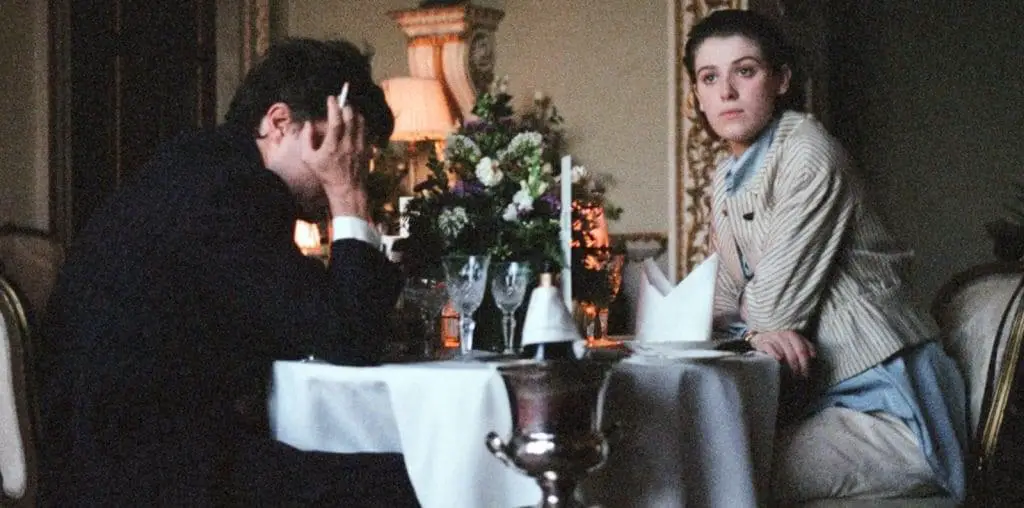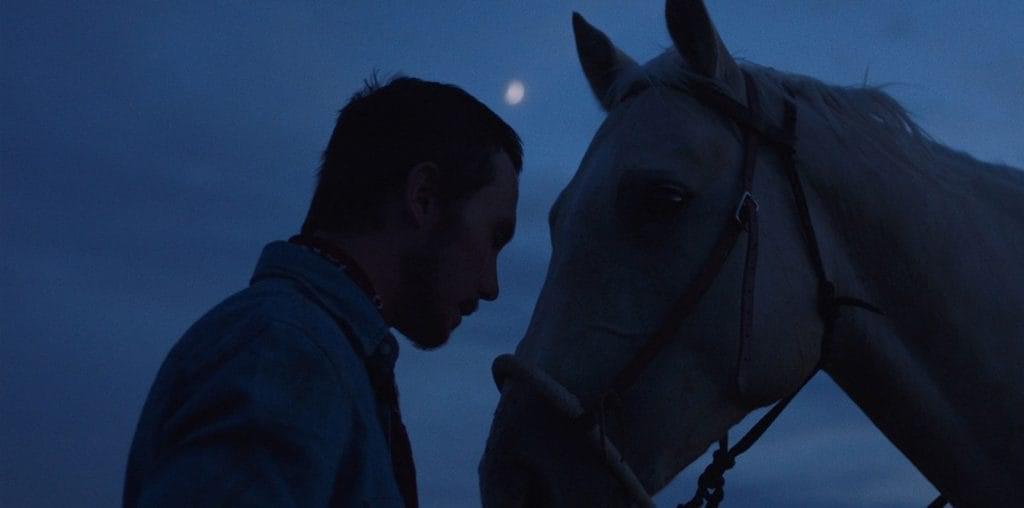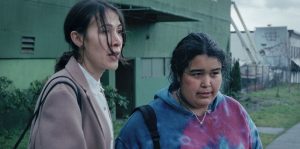
The Body Remembers When the World Broke Open is a poignant “women story” co-directed and co-written by Kathleen Hepburn and one of its leads, Elle-Maija Tailfeathers. Set in Vancouver, Canada, with two indigenous female characters at the forefront, the film is a distinctive Vancouverite tale. Unfortunately, it is also quite a universal one, particularly true for North America at large. The events unfold in real-time, giving the illusion of a one-take a-la Birdman which elevates the realism, intensity, and urgency of the situations depicted.
It opens on a rainy day with pregnant indigenous teen, Rosie (Violet Nelson). She seems morose, or pensive, as she is walking through a desolate urban part of town. She arrives, presumably, home, where we can hear her boyfriend shouting violently. Meanwhile, her mother-in-law is silently, or submissively, watching TV as if nothing is happening. We get a sense that the man might be doing more than screaming at them as we see him bossing Rosie around.
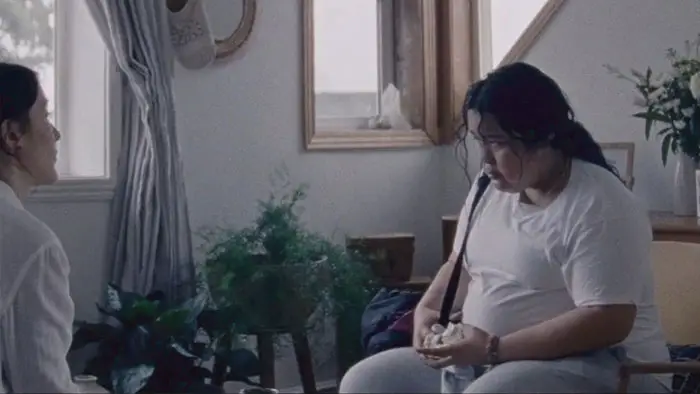
“Everybody turned a blind eye because it is a depressingly common occurrence and she was, indeed, regrettably just ‘another one’—another desperate casualty of the broken system.”
Then we meet a young woman, Áila (Elle-Máijá Tailfeathers), having an emotional appointment at the doctor regarding her birth control options. After the painful medical visit, she takes a bus to go home, but when she gets off, she finds a distraught and shocked Rosie standing barefoot under the pouring rain. Rosie looks hurt or traumatized, and her boyfriend is hysterically yelling at her from afar. Aila is getting upset, too, and maybe afraid of what this crazy man can do to Rosie, her, or anybody in the street. So she acts quickly, takes Rosie by the hand, and starts walking fast. What follows is a tense and riveting scene where the camera follows them through the busy streets and back alleys, with all the nerve-racking city noise, from car honking at them for walking recklessly, to a scary dog barking madly at anyone. Rosie is walking with difficulty without shoes on the damaged road and water puddles, but they both know they have to keep going and cannot stop in case they are followed. Throughout this “chase sequence,” Rosi is silent, possibly under shock, and vulnerably following Aila, who might walk decidedly with a plan, but is in fact, as lost as her counterpart.
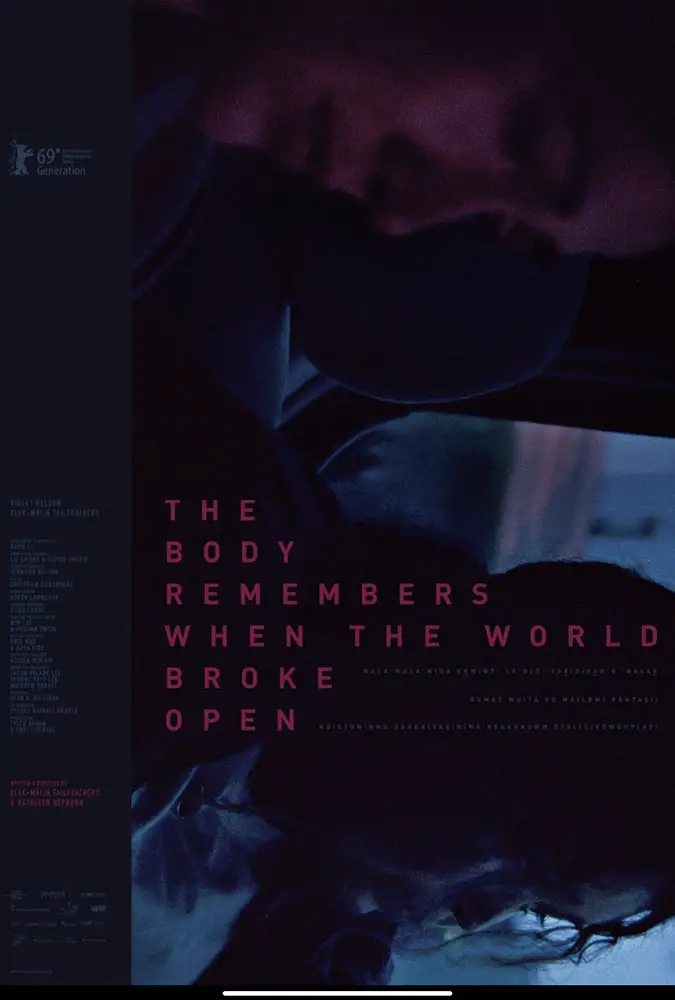
"…a great story to tell about the harsh realities of indigenous women, or simply women everywhere in the world."
